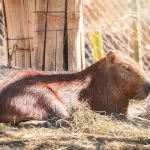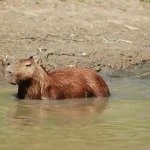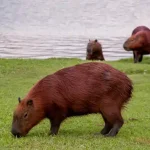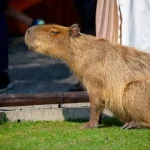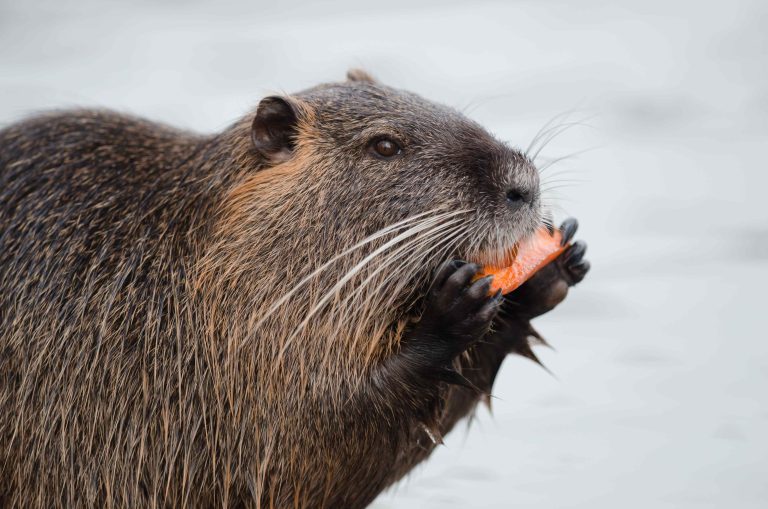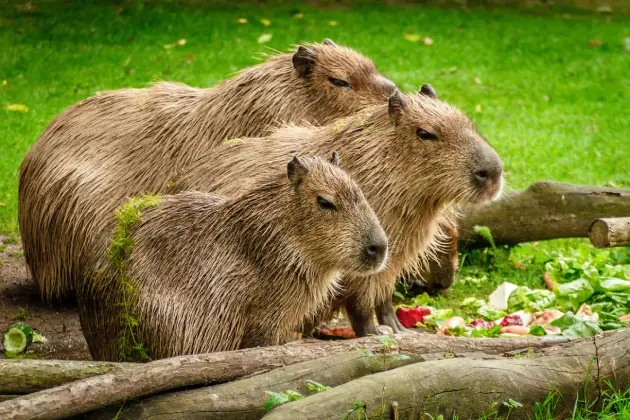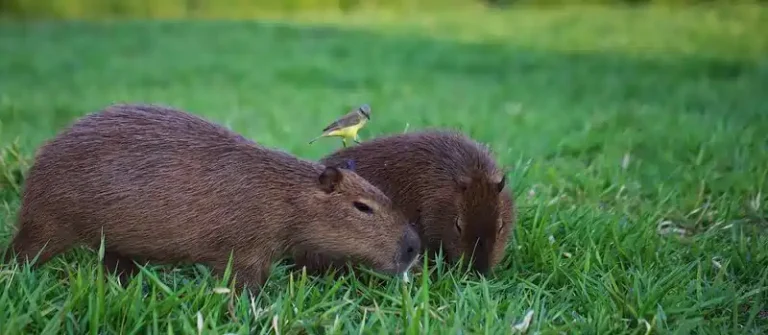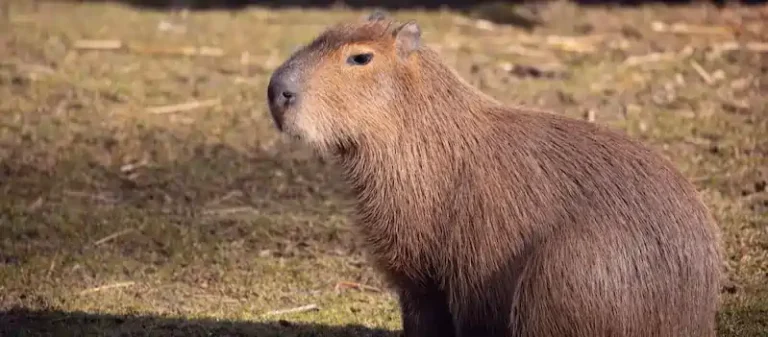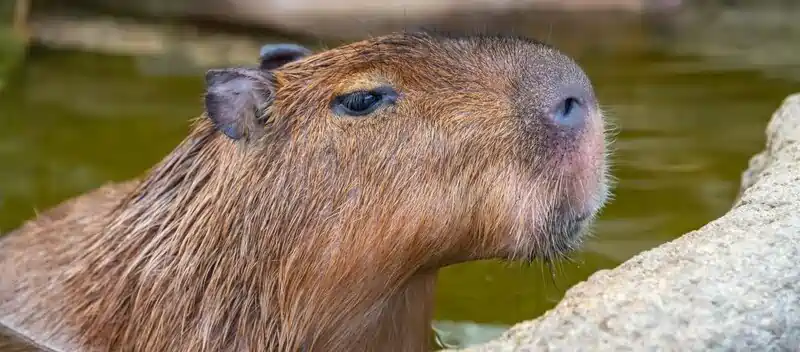
Capybaras are fascinating animals. Known for their calm and friendly nature, these large rodents have become popular pets in many places around the world. But what if you live in Minnesota and are wondering whether you can own a capybara as a pet? In this article, we will explore whether it’s legal to own a capybara in Minnesota, the considerations you should have before getting one, and everything you need to know about caring for this unique pet.
What Is a Capybara?
Capybaras are the largest rodents in the world, weighing up to 150 pounds and growing as long as four feet. Native to South America, they live in social groups near water. These animals are calm, friendly, and highly social, often living peacefully with other animals and humans. They are also herbivores and primarily eat grass, aquatic plants, and fruit.
Because of their social nature, capybaras do not do well living alone for long periods. They thrive in environments where they can interact with other capybaras or animals, making them an interesting pet for those who have the space and time to care for them.
Can You Own a Capybara in Minnesota?
If you live in Minnesota and are thinking about getting a capybara as a pet, it’s important to know that it is illegal to own a capybara in the state. Minnesota has strict laws regarding exotic animals, and capybaras fall under these regulations.
Why Are Capybaras Restricted in Minnesota?
Minnesota, like many other states, has laws that regulate the ownership of exotic animals. These laws are designed to protect both the animals and the people who may come into contact with them. Capybaras are considered regulated animals in the state because they are not native to Minnesota and could pose a risk to local ecosystems if they were to escape or be released into the wild.
The state has restrictions on owning capybaras to ensure that exotic animals do not disrupt the local environment. Additionally, many of these animals require special care, large spaces, and specific environments to thrive, which many homes cannot provide.
The Legal Process for Owning Exotic Pets in Minnesota
If you are in Minnesota and are still interested in owning an exotic pet, it’s important to understand the legal framework in the state. Many exotic pets, including capybaras, are regulated and require special permits. However, even with a permit, it is important to note that capybaras are specifically restricted and cannot be legally owned as pets in Minnesota.
It is important to check with the Minnesota Department of Natural Resources or local authorities for up-to-date information on what pets are allowed and the process for obtaining a permit if you’re considering an exotic animal.
Considerations for Owning a Capybara
Although owning a capybara may not be allowed in Minnesota, it is still helpful to understand the needs of these fascinating animals. Capybaras require a lot of space, access to water, and a social environment to be happy. Here are some key things to consider before you think about owning a capybara:
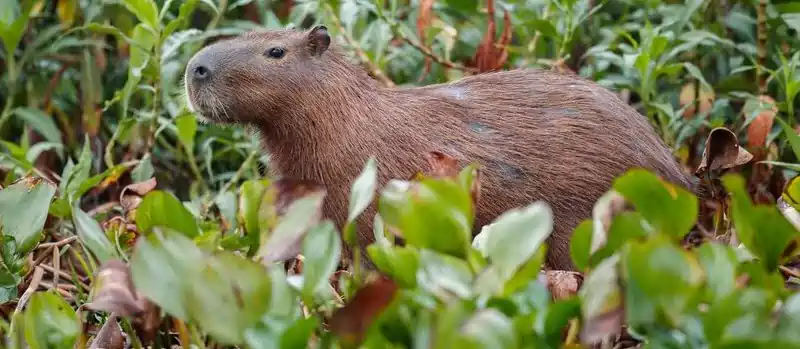
Space Requirements
Capybaras are large animals that need a lot of room to roam. They are not suited for small apartments or homes with limited outdoor space. If you were able to own a capybara, you would need a large yard or enclosure where the animal can move around freely.
Capybaras are also known to dig and burrow, so it’s important to have a secure enclosure that can contain them. The enclosure should be large enough for the capybara to explore and exercise, and it should also have a pond or pool for them to swim in.
Social Needs
One of the most important things to understand about capybaras is that they are highly social animals. In the wild, they live in large groups, and they thrive on companionship. Because of their social nature, it is not recommended to keep a single capybara alone. They need the company of other capybaras or constant human interaction to stay happy and healthy.
If you are considering owning a capybara, you would need to ensure that you can provide them with companionship, either by keeping more than one capybara or by offering plenty of attention and interaction.
Water Requirements
Capybaras are semi-aquatic animals, meaning they require access to water to keep them happy and healthy. They love swimming and spend a lot of time in the water, so having a water source such as a pond, pool, or even a large kiddie pool is essential.
Water is also important for their physical and mental health. Without access to water, capybaras can become stressed, and this can lead to health problems. Ensuring a clean and safe water source is essential if you plan to care for a capybara.
Diet and Health Care
Capybaras are herbivores, and their diet mainly consists of grass, hay, and some fruits and vegetables. They need a balanced diet to stay healthy, and it’s important to ensure they are eating the right foods. In addition to their diet, capybaras require regular veterinary care, especially if they are exotic pets.
Regular check-ups with a veterinarian who is experienced with exotic animals are important to ensure the capybara’s health. In particular, their teeth, which grow continuously, need to be monitored to prevent health issues.
What to Do If You Want a Capybara but Live in Minnesota
If you live in Minnesota and were hoping to own a capybara, you may need to reconsider your choice of pet. Since capybaras are restricted in the state, it is illegal to keep them as pets. However, there are still ways to learn about capybaras and engage with these fascinating animals.
You might consider visiting zoos, wildlife sanctuaries, or animal rescue organizations where you can observe capybaras up close. Many zoos have capybaras in their exhibits, and you may even be able to learn about their behavior and habits from knowledgeable staff.
If you’re particularly fond of capybaras, you could also volunteer at animal sanctuaries that house these animals. Volunteering gives you the chance to interact with them while helping to care for them.
Conclusion
Owning a capybara in Minnesota is not legally possible due to state regulations that restrict exotic pets. While these animals are wonderful companions and interesting creatures, it is important to consider the legal and ethical aspects of owning such an animal. Capybara Pet Info hopes this guide has provided you with a clear understanding of the restrictions surrounding capybara ownership in Minnesota, as well as what it takes to care for a capybara properly.
Frequently Asked Questions (FAQs)
1. Is it legal to own a capybara in Minnesota?
No, owning a capybara in Minnesota is illegal. Minnesota has strict regulations on exotic animals, and capybaras are considered regulated species.
2. Why are capybaras restricted in Minnesota?
Capybaras are restricted in Minnesota due to concerns about them disrupting local ecosystems and the challenges in providing proper care for exotic animals.
3. What kind of care do capybaras need?
Capybaras need a lot of space, access to water for swimming, a companion to prevent loneliness, and a balanced diet of grass, hay, and vegetables.
4. Can I visit capybaras in Minnesota?
Yes, while you cannot own a capybara in Minnesota, you can visit them at zoos, wildlife sanctuaries, or animal rescue organizations.
5. What should I do if I want to learn more about capybaras?
You can learn more about capybaras by visiting animal sanctuaries, volunteering at wildlife centers, or reading up on their care and behavior.


